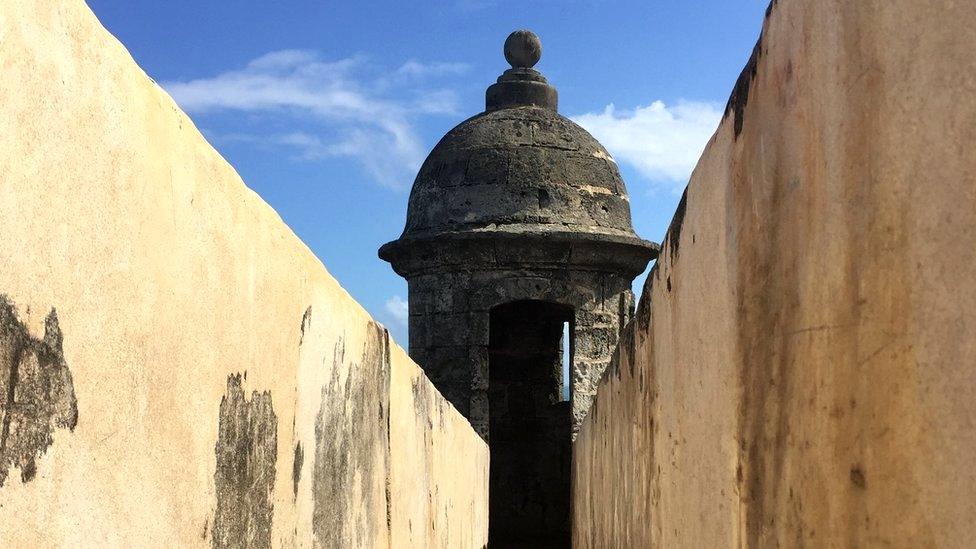Puerto Rico misses second major debt payment as economy struggles
- Published
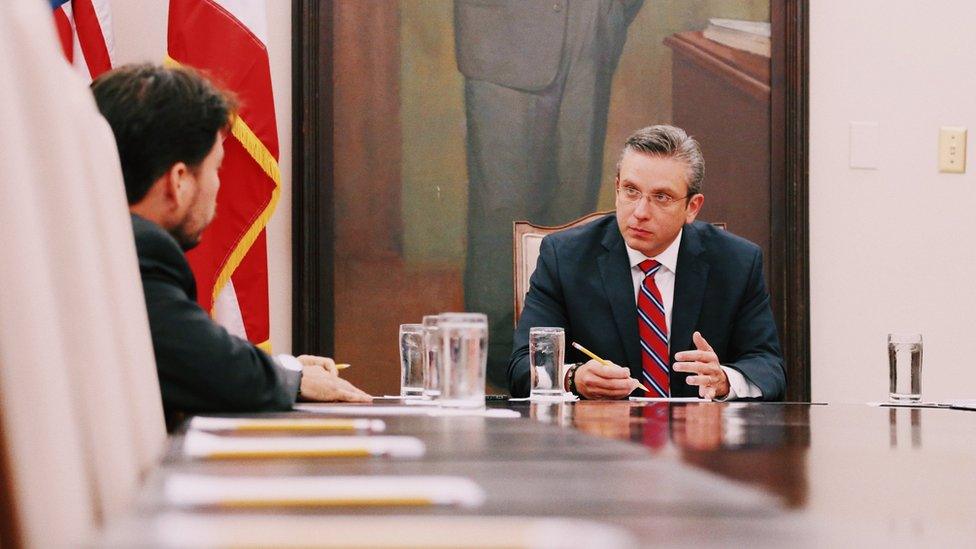
Puerto Rico has defaulted for the second time in five months, as the island struggles with massive debt obligations and a flagging economy.
Last week, the island's governor said it would pay most, but not all, of the nearly $1bn (£681.6m) it owed, using extraordinary financial measures.
Governor Alejandro Padilla has called for the island to be granted bankruptcy rights like those on the mainland.
The US Congress is set to debate the issue in the coming weeks.
Overall, the island has a total debt load of about $70bn, which Governor Padilla has said the island cannot pay.
The biggest payment on Monday was made towards the general obligation (GO) debt, which came to a total of $328.7m.
More than half of that payment was made by raiding funds for other government agencies in a special move being dubbed a "clawback", which had the aim of making sure the constitutionally-guaranteed GO debt would be paid.
In the end, the manoeuvre meant that the island defaulted on about $37m worth of bonds tied to infrastructure and development institutions on the island.
In an interview with CNBC, external on Monday, Mr Padilla said that the island was bracing for lawsuits, and warned that "every dollar used to pay lawyers will be a dollar...not available to pay creditors".
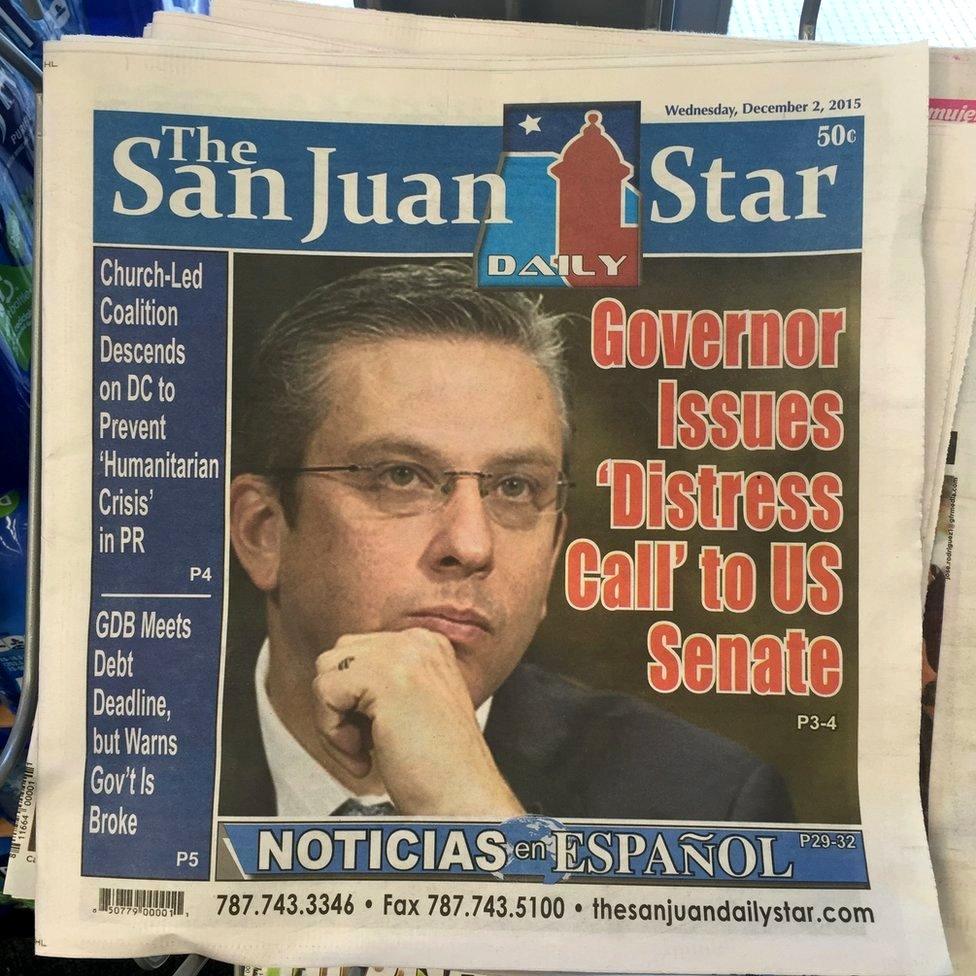
Governor Padilla has been calling on the US Congress to grant the island bankruptcy protection
In recent months, the governor has repeatedly warned of a humanitarian crisis that could unfold and has called on the US Congress to extend bankruptcy protections to the island.
US states and territories cannot declare bankruptcy under federal law, though cities and public utility companies on the mainland can. Puerto Rico's public utilities are heavily debt-burdened, but are not allowed the bankruptcy rights that their mainland counterparts are afforded.
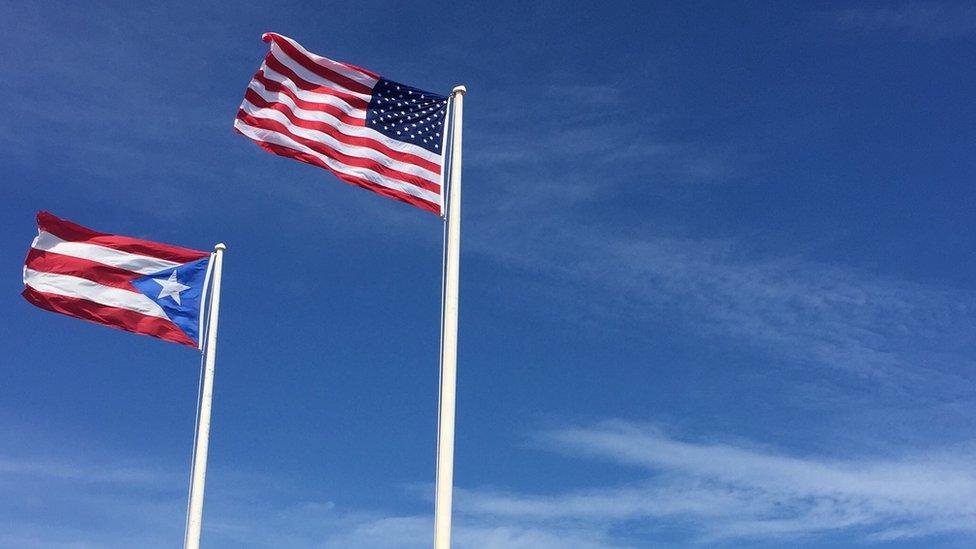
Statehood supporters say the crisis demonstrates why the island should become the 51st US state
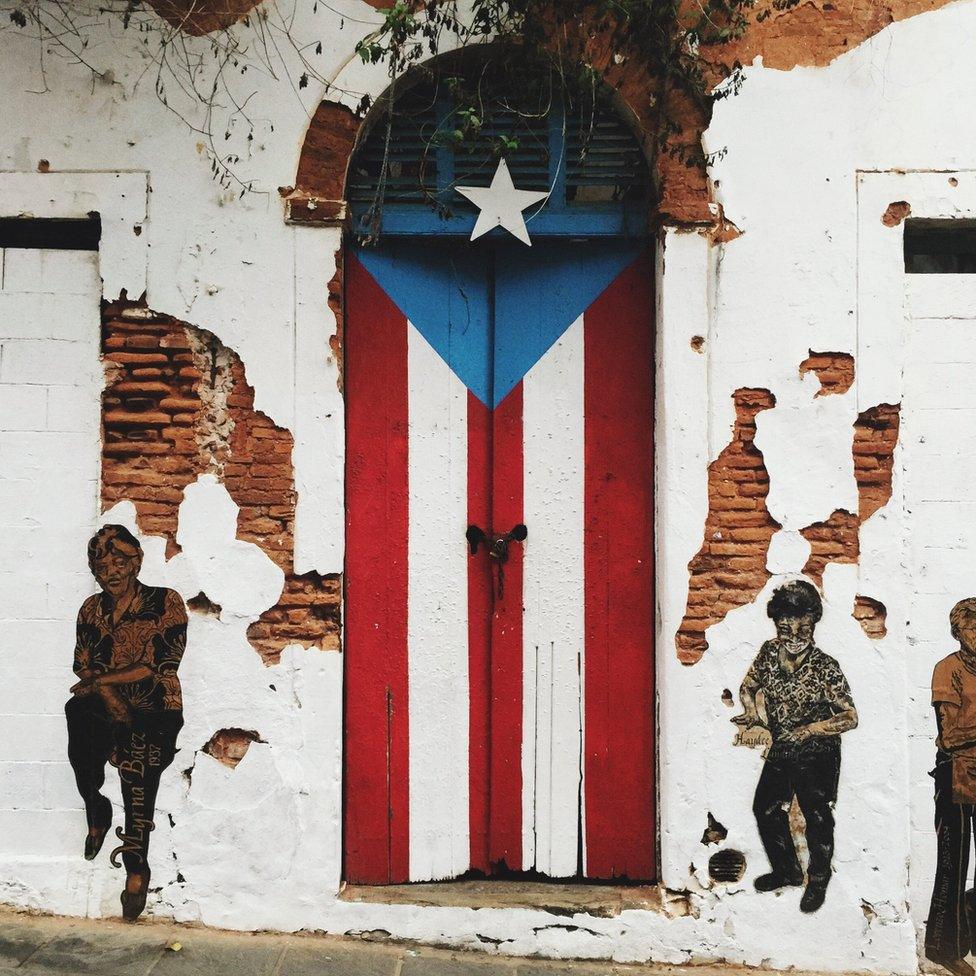
Independence activists say it demonstrates US indifference towards the island's welfare
Republicans oppose extending the right to the island. The White House, while supportive of a bankruptcy option, has ruled out a bailout.
"What we are asking is for Congress to give us the tools to address this crisis," Governor Padilla said on Monday. "We do not want a bailout, we just want the tools to solve his crisis".
Congress is expected the take up the the issue in the coming months, after Democratic efforts to aid the island were killed during budget debates in December.
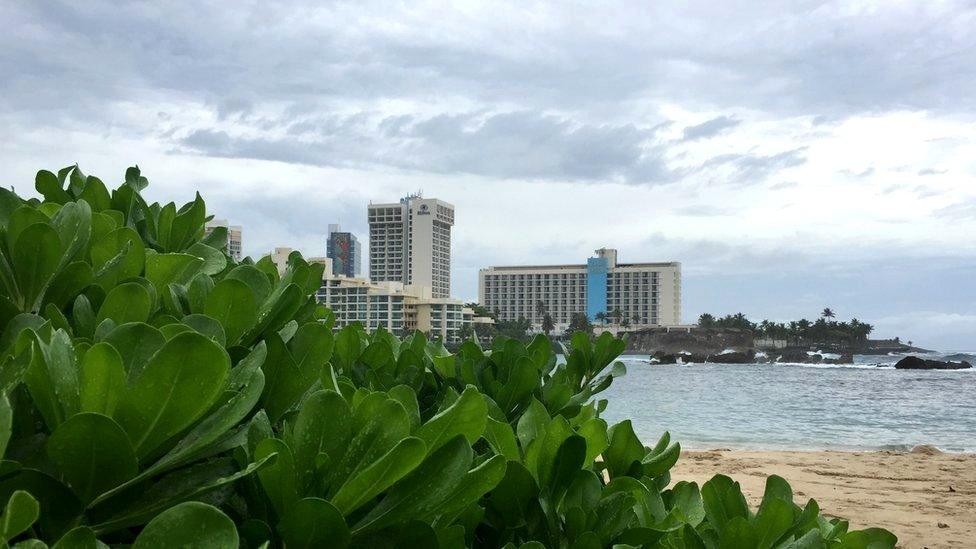
The island has been called the "Greece of the Caribbean"
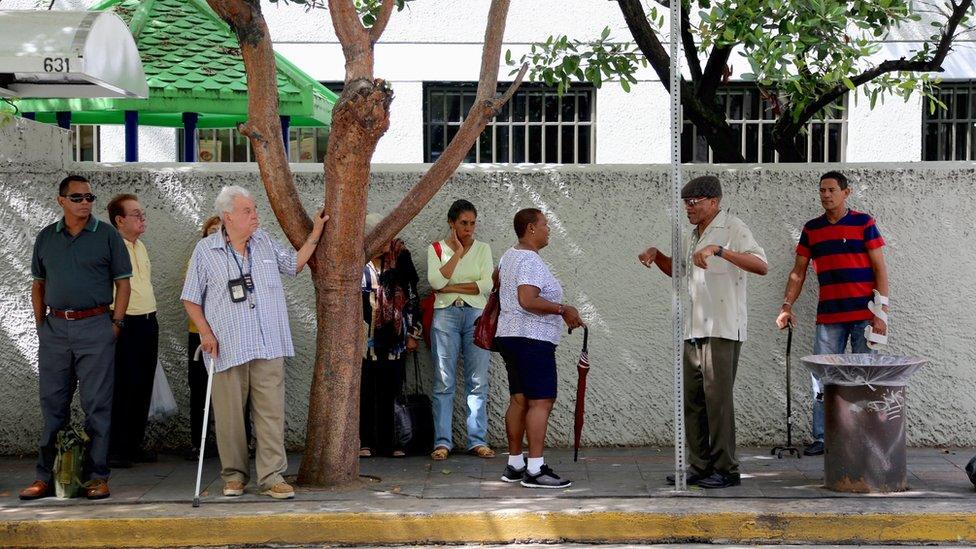
The flagging economy and uncertainty is driving mass emigration, with an average of about 230 people leaving per day
As the debt crisis has unfolded, the economy has floundered, with pundits often calling it the "Greece of the Caribbean".
Unemployment on the island stands at 12.5% - around twice that of the US - and around 45% of people living in poverty.
The island faces a bill of around $400m due in February and a much larger $1.9bn bill in July.
"This is not political rhetoric, this is mathematic," Mr Padilla said. "It's very simple, we don't have the money to pay".
Photos by the BBC's Paul Blake in San Juan.
- Published1 December 2015
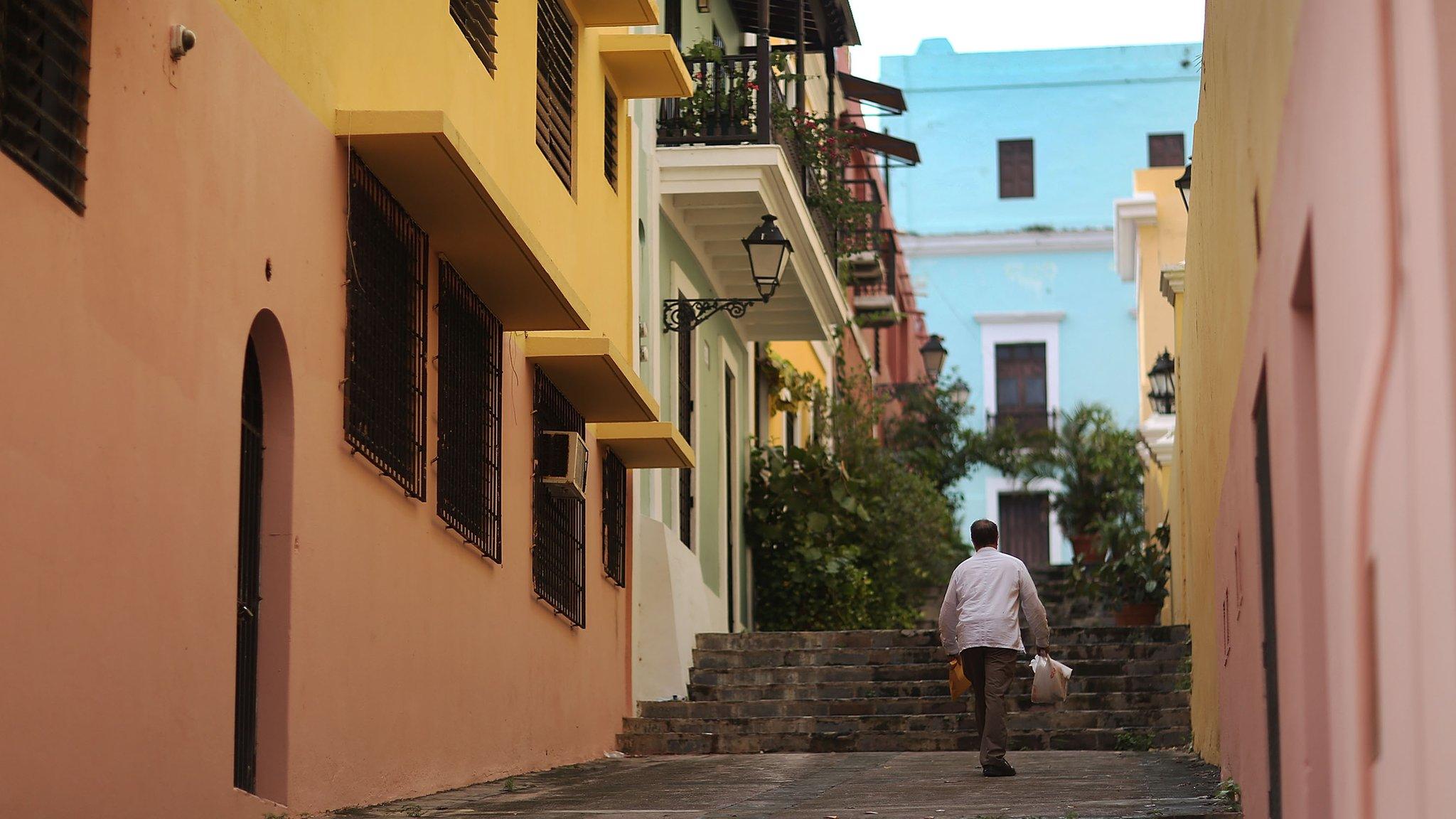
- Published4 August 2015
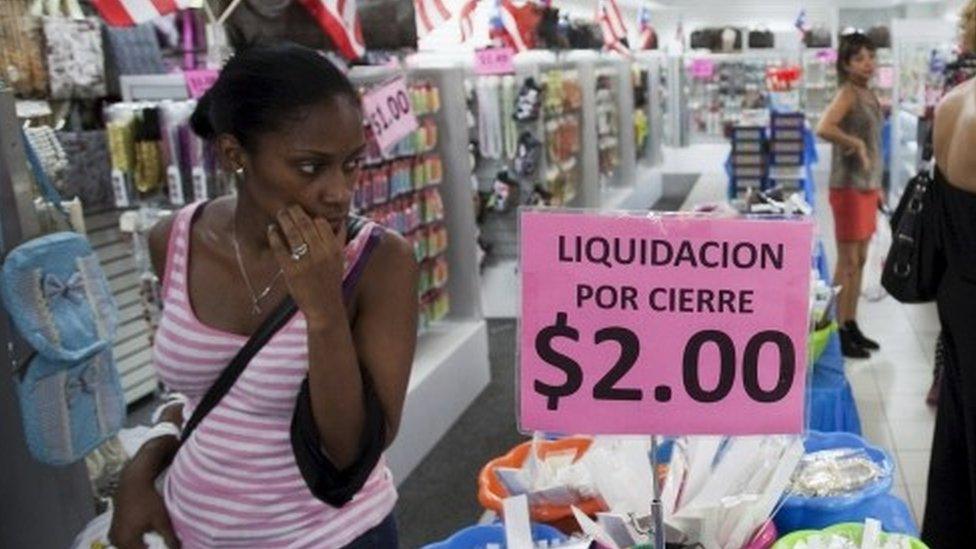
- Published29 July 2019
